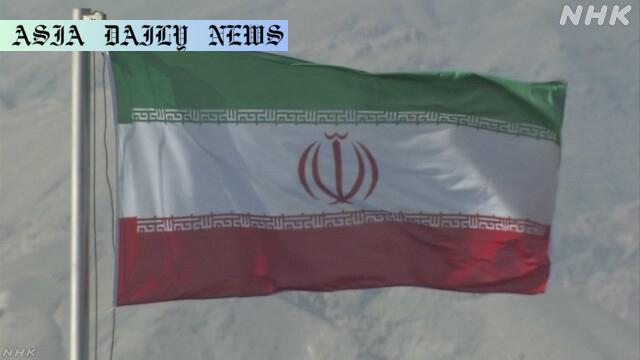Enrichment: Iran plans to launch a new enrichment center and upgrade centrifuges in response to the IAEA resolution’s criticism.
- Iran to establish a new uranium enrichment center in retaliation.
- Advanced centrifuges to replace older machines in Fordo facility.
- IAEA resolution criticizes Iran’s lack of cooperation in inspections.
- Potential impact on ongoing US-Iran nuclear talks.

Iran’s Reaction to IAEA Criticism
In a recent development, the International Atomic Energy Agency (IAEA) adopted a resolution that has drawn a strong reaction from Iran. The resolution, spearheaded by countries such as the United States and the United Kingdom, critiques Iran for its alleged lack of full cooperation with the agency’s efforts to investigate its nuclear activities. In retaliation, Iran announced its plans to establish a new uranium enrichment center and employ advanced technology to enhance its existing nuclear capabilities. This bold step has reignited concerns about Iran’s nuclear intentions and the potential geopolitical impact this could have on the broader Middle East and global nuclear non-proliferation efforts.
Core Concerns Highlighted in the IAEA Report
Last month, the IAEA presented a report that identified nuclear material at several undeclared sites in Iran. The findings indicated that nuclear-related activities at these sites had occurred as far back as the early 2000s. The resolution adopted by the IAEA’s board of governors urges Iran to permit on-site inspections and sample collection at an early stage to clarify its nuclear developments. Iran’s refusal to engage constructively with the IAEA has raised red flags, escalating tensions between Iran and Western nations, particularly against the backdrop of sensitive nuclear negotiations.
Iran’s Planned Countermeasures
Tehran’s Ministry of Foreign Affairs, in conjunction with the Atomic Energy Organization of Iran, released a strongly worded statement condemning the resolution. The statement accused the involved countries of politicizing the IAEA’s mission and using the board of governors as a platform for political maneuvering. In response, Iran plans not only to launch a new uranium enrichment facility but also to replace some of the current centrifuges at the Fordo enrichment center with more advanced models. These countermeasures signal Iran’s determination to maintain its nuclear trajectory, sparking fears of an accelerated push toward weapon-grade uranium enrichment.
Potential Implications for US-Iran Negotiations
The timing of Iran’s announcement, just days before scheduled nuclear talks with the United States, could jeopardize the prospect of finding common ground in the discussions. As Iran ramps up its nuclear enrichment capabilities, trust between the negotiating parties may deteriorate further. The U.S. and its allies have long grappled with how to address Iran’s nuclear ambitions, balancing diplomatic options with economic sanctions and the looming threat of military interventions. What remains clear is that Iran’s next steps will bear significant implications not just for Middle East stability, but for the international community’s approach to nuclear regulation.
The Broader Impact on Regional Stability
The escalation of tensions between Iran and the IAEA has the potential to affect the already fragile stability of the Middle East. With Iran fortifying its nuclear infrastructure, neighboring countries may feel compelled to enhance their own defense mechanisms or even pursue nuclear capabilities themselves. This could lead to an arms race in the region, complicating efforts by international organizations to prevent nuclear proliferation. Furthermore, increased tensions between major powers, such as the United States, Russia, and China, could emerge as each nation aligns with its strategic interests regarding Iran’s nuclear activities.
The Need for Diplomatic Resolution
Despite Iran’s defiant moves, there remains an opportunity for diplomacy to mitigate the current crisis. Previous negotiations have served as a foundation for finding solutions, even amidst periods of heightened tension. To avert further escalation, all stakeholders must work to re-establish trust and pursue a transparent and balanced approach to addressing mutual concerns. The international community must also provide a robust framework to ensure Iran’s compliance with global nuclear standards, thus preventing potential misuse of nuclear materials for weaponization.



Commentary
Iran’s Complex Relationship with the IAEA
The recent escalation between Iran and the International Atomic Energy Agency (IAEA) reflects the deeply entrenched issues surrounding transparency and trust. Iran’s decision to launch a new enrichment center in response to criticism is a demonstration of its defiance against perceived external pressure. This situation sheds light on the difficulties of enforcing compliance in international nuclear agreements, particularly in regions with high geopolitical sensitivity. The IAEA’s findings and subsequent resolution reveal an ongoing struggle to ensure global nuclear safety while respecting national sovereignty.
A Challenge to Diplomatic Efforts
From a broader perspective, Iran’s latest maneuver complicates the already precarious relationship with Western nations. As nuclear talks are set to resume, the announcement of increased nuclear activities could be interpreted as a tactical move to strengthen Iran’s bargaining position. However, such moves risk undermining trust, which is crucial for successful negotiations. For diplomacy to prevail, both sides need to adopt a pragmatic approach that acknowledges and addresses each other’s core concerns. Otherwise, the stalemate may persist, or worse, escalate into actions with irreversible consequences.
The Need for a Unified Global Response
What this scenario underscores is the necessity for a unified global response to issues of nuclear non-proliferation. The lack of cooperation and mutual agreement risks not only regional stability but also the broader goals of ensuring global security. Countries with significant influence, including those in the United Nations Security Council, must play a larger role in mediating the situation. While upholding the core principles of international law, there is also a critical need for these nations to engage with Iran constructively without resorting to punitive measures that could exacerbate tensions.